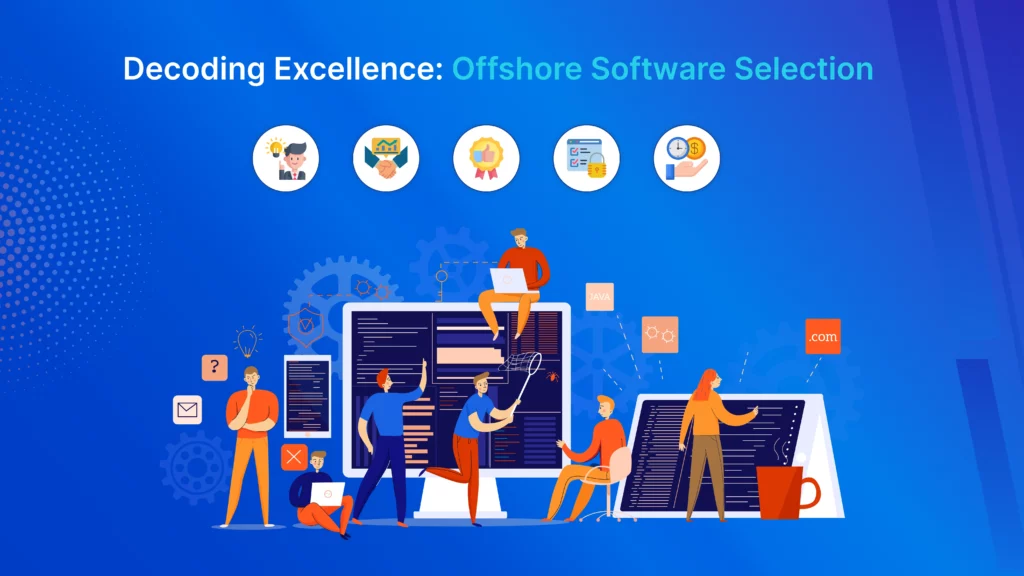
Tapping into talent around the globe. That’s the driving force behind the rise of offshore software development centres. As companies race to build digital capabilities and bring new tech products to market, they’re finding remote teams of skilled developers in various locations who can accelerate innovation at a fraction of the cost.
From Eastern Europe to South America and beyond, these ODCs (Offshore development centres) are powering the future. Countries like India and Ukraine have deep pools of engineering talent. Rather than struggling to find scarce, expensive local developers, smart companies are distributing work to lower cost hubs abroad. These agile teams code, test, debug and build apps to push the tech envelope faster.
The model keeps proving its worth. But success requires picking the right partner, establishing processes to enable collaboration across time zones, and taking cultural differences into account. Do those things well and the world of talent opens up. With the right strategy, offshore development unlocks game-changing advantages for your business. Your innovation engine gains horsepower. And you maximise value creation.
In this article, we’ll explore the unique benefits of partnering with offshore software development centres. At The Scalers, we’re experts with years of experience in this field so let us share some points on why offshore software development actually works and why it’s the model of the future. Read on to learn how collaborating with an offshore development centre can enhance your tech capabilities and boost your companies’ efforts in today’s cut-throat marketplace!
Table of Contents
Types of Software Outsourcing

Source: rocketmakers.com
There are a few primary approaches companies can take for offshore software development:
Offshoring involves hiring developers in low-cost countries like India or Ukraine. While geographic distance can pose communication challenges, smart management and collaboration practices help overcome any obstacles. Offshoring offers significant cost savings, access to a massive talent pool of developers, and the offshore dedicated development team works solely on your project.
Nearshoring means partnering with teams in closer, neighbouring countries that still offer cost savings compared to domestic rates. For US companies this often means Latin America or Eastern Europe. But, compared to offshoring, the rates are higher and talent pools much smaller.
Outsourcing refers to hiring an external software development firm to manage a team of developers. However, these are often freelancers juggling multiple clients rather than dedicated workers. This model does reduce client HR overhead but also provides less control.
How Do Offshore Teams Work?
1. Strategic location
Offshore software development teams are located in different countries, carefully chosen to access specialised skills and cost savings. The most popular offshore destinations are India, the Philippines, and Ukraine. Companies can choose to work with one ODC or multiple partners in different locations based on their needs.
2. Attention to communication
Efficient communication is critical for offshore teams’ success. To overcome geographical barriers, offshore development centres use video conferencing, instant messaging, project management platforms and other tools to stay connected. Regular meetings, updates and collaboration sessions integrate the offshore team into the company’s workflow.
3. Specialisation and niche skills
Offshore teams have deep expertise in their speciality, hence they are handpicked for their skills. For example, a company needing software development would bring on a team fluent in Python, Java, JavaScript and other programming languages. This specialisation delivers top-quality results and faster project completion.
4. Workflow and flexibility
When productivity is paramount, offshore teams often adopt Agile frameworks like Scrum or Kanban. This allows incremental progress with continuous feedback and the flexibility to adapt to changing requirements. Clients and offshore teams collaborate closely to align with project goals and plans.
Why Offshore Software Development Actually Works

Source: botreetechnologies.com
Time zone differences
Often perceived as a challenge, but can actually work to the advantage of offshore development. With remote teams working around the clock, development can proceed continuously, reducing time-to-market for products. A project can be advanced during the working hours of one team and seamlessly handed off to another team as they come online, creating a non-stop development cycle.
Communication tools and technologies
These have evolved significantly, mitigating the challenges posed by geographical distances. Video conferencing, instant messaging, and collaborative platforms enable seamless communication and project management. Regular updates, progress reports, and virtual meetings help bridge the gap and keep all stakeholders in the loop, fostering a sense of transparency and collaboration.
Security measures
Security has also improved, addressing concerns related to data protection and intellectual property. Reputable offshore development centres invest heavily in security protocols, ensuring that sensitive information is handled with the utmost care. NDA agreements and legal frameworks provide an added layer of protection, reassuring companies that their intellectual property is safeguarded.
Benefits of Offshore Software Development
Access to a large talent pool
Offshore locations like India and Eastern Europe have an abundant talent pool of skilled software developers. Countries like India have huge talent pools with specialised skills in high-demand domains like cloud, AI/ML, blockchain, IoT, RPA and more. Tapping into these rich tech markets grants access to skills that may be scarce locally.
Cost savings
This stands out as a primary advantage of offshore software development. Many developing countries offer skilled software developers at significantly lower hourly rates than their counterparts in developed nations. This allows companies to access top-tier talent without breaking the bank.
Scalability
This is a key benefit of offshore development, allowing companies to easily scale their teams up or down based on project requirements. This flexibility enables businesses to adapt to changing market conditions and manage their resources more efficiently.
Cultural diversity
Exposure to different cultural perspectives and work styles promotes a dynamic environment, encouraging creative problem-solving and the generation of unique ideas. This cultural exchange can lead to enhanced innovation and a more comprehensive understanding of global markets.
Important Factors to Consider When Hiring an Offshore Software Development Centre

Source: uplers.com
It’s not just about finding any offshore development centre; it’s about being highly selective in your choice to ensure a successful collaboration. Several crucial factors should be carefully considered to guarantee a fruitful partnership that aligns with your project requirements and business objectives. We’ve listed the most important ones:
- Proven experience with complex projects utilising the latest technologies
- Skilled resources with depth in your tech stack and domain
- Delivery processes that ensure high-quality
- Security and compliance with legal and data regulations
- Communication and transparency for seamless collaboration
- Cultural affinity for greater team cohesion
- Scalability to flex up or down as needs change
At The Scalers, we go above and beyond, guaranteeing a successful partnership aligned with your project needs. Our commitment to excellence includes all of the above providing you with a tailored and seamless collaboration experience. You can trust us to elevate your projects to new heights with our dedication to quality and innovation!
Summing up
In a nutshell, offshore software development can offer significant strategic benefits when approached thoughtfully. Partnering with an offshore development centre not only brings the advantages of continuous acceleration, expertise in high-demand areas, and cost-efficient innovation but also provides the opportunity to seamlessly integrate and amplify efforts internally.
Offshore development, when done right, is the perfect strategy for businesses ready to revolutionise their tech game.







